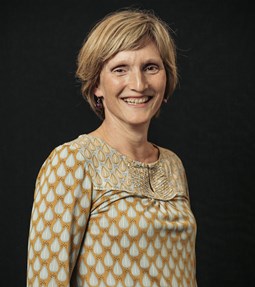When you follow the health coverage a little, eHealth seems to be the solution for everything. But is it? The one who can know is Prof. Niels Chavannes, one of the scientific leads for the Medical Delta program “eHealth & self-management for a healthy society.” We spoke to him about the eHealth hype and about his program that examines eHealth applications, shares knowledge and separates the sheep from the goats.
What makes eHealth suddenly the answer to everything?
There is a huge expectation when it comes to eHealth. We all know that healthcare is growing explosively, partly because we are all getting older. But there are far too few hands to do the work. eHealth therefore seems to offer a solution. The paradox is that little has been scientifically substantiated. There are products on the market that are good, but also products that can cause demonstrable damage. In collaboration with the LUMC and many other stakeholders, I therefore set up the Medical Delta Living Lab NeLL: the National eHealth Living Lab. Here researchers, doctors, designers, patients, carers and insurers work together to improve eHealth. The collaborating partners in the Medical Delta eHealth & Self Management for a Healthy Society program, such as Prof. Andrea Evers, Associate Prof. Valentijn Visch, Prof. Marc Neerincx and Dr Hans Bussman work closely with the NeLL.
What kind of damage can an eHealth app cause if it is of poor quality?
You must distinguish between medical devices and lifestyle applications. If people mistakenly think they have a medical device, a lot can go wrong. A while ago an app was investigated whose creators claimed it could measure blood pressure by holding your smartphone against your breastbone. Then you are talking about a major health risk for people who need medication for their blood pressure. Apps like these also have the effect of increasing eHealth image damage, because they are all smoke and mirrors. We want to prevent that.
What happened to that blood pressure app?
Our colleagues at the Massachusetts Institute of Technology published their findings, and that is actually enough for a producer to withdraw the app. It was an American product. There you risk an even greater chance of claiming compensation.
But we don't really want to be a police officer. That is fighting a lost battle. There are now over three hundred thousand eHealth applications and that is growing every day. We prefer to ensure that good applications can stand out. We are now working on a European project to draw up a number of quality requirements and scientific rules of conduct that eHealth should meet, including an ISO certification. We do not have the illusion that every eHealth producer will adhere to it, but a dichotomy can arise. The best thing would be a quality mark in the app store, that displays which apps meet the quality rules.
What was your personal motive for setting up NeLL? Are you a gadget freak?
No, not at all actually, although you see that a lot in this field. I am a very curious man. From an early age I have dealt with both the clinical and scientific aspects of medicine, because scientific research and clinical applications reinforce each other. That is why, after completing my medical studies, I also completed a trajectory as a doctor in training for (clinical) researcher and general practitioner. I was asked to set up a research team in Leiden and in fact all studies always contain both components. That is apparently important to me.
Five years ago I became the first clinical professor of eHealth, but I also still work as a doctor with consultations for homeless people and illegal immigrants.
You have received a number of research grants, including an ERDF grant. Do you want to tell something about that?
This concerns European funds for various flagship projects. The Box is a project on wearables and telemonitoring with the aim of redesigning the care path for the chronically ill. That started with heart patients, but we will also work with other patients and devices. People who have had a heart attack must regularly return to the specialist during a year after their treatment. That is quite a burden, because such a hospital visit can easily take a few hours. In addition, it also costs a lot of money. We looked at which visits are really necessary. Those are the first and the last. The other visits are mainly measurement moments. With the wearables, people can take their measurements at home - whenever it suits them. That is a huge increase in efficiency.
You just told how many parties work together within NeLL. Why is that important?
I don't see eHealth as the panacea for everything. It is, however, an important and promising exponent of healthcare today. In addition to gaining knowledge from as many different parties as possible, we also want to share as much as possible. For example, we work with healthcare insurers to help them formulate the conditions under which eHealth fits into the insurance policy. By looking across disciplines and involving parties, you take all perspectives with you to fulfill the promises of eHealth.
The best thing would be a quality mark, so you can see in the app store which apps meet the quality rules.

